Back when I was eating animals, I viewed vegans as a bit extreme, unreasonable, perhaps even irrational. I had been vegetarian in the seventies, because I thought it was a requirement for “being spiritual,” but I was never really committed to it. It was more like a set of arbitrary rules I had agreed to follow, which I was free to break in small ways, like eating cake made with eggs (don’t ask, don’t tell). Vegans, on the other hand, were off the deep end, eschewing not only meat and eggs, but…dairy too? It was easy to write them off as way too extreme to take seriously, let alone emulate. What did they think—that they could somehow convince the millions of meat-eaters to start living on tofu?
 A few years ago, I was visiting some friends who live in ranch country, and I happened to notice some healthy-looking cows in the small adjoining field that hadn’t been there before. I wondered aloud whether some farmers had moved in next door, and my friends informed me that their neighbors were vegans, and had saved these animals from slaughter. It seemed like a rather pathetic gesture at the time—a mere drop in a massive leaking bucket. We chuckled condescendingly and went on to other topics.
A few years ago, I was visiting some friends who live in ranch country, and I happened to notice some healthy-looking cows in the small adjoining field that hadn’t been there before. I wondered aloud whether some farmers had moved in next door, and my friends informed me that their neighbors were vegans, and had saved these animals from slaughter. It seemed like a rather pathetic gesture at the time—a mere drop in a massive leaking bucket. We chuckled condescendingly and went on to other topics.
Roughly six months later, I began eating a vegan diet. I know this is a jarring segue, but it’s exactly what happened. I had just written a vegan cookbook, so it seemed only logical that I should at least try it, to see if it would work for me. To say it did work for me would be a spectacular understatement. My health and energy level improved dramatically, but I also discovered something about myself I had never known—or, more accurately, that I had kept myself from knowing. I had never consciously decided whether I could endorse slaughtering animals for my food. Instead, I had glossed it over with a vague veneer of convenient rationalizations. Now I realized it had never felt right to me, and it was a huge relief to finally discard the pretense.
One day, my wife went to the pound to find a dog for her mother. We had decided long ago that pure bred dogs were a poor choice, both ethically and practically, given the health problems most of them seemed to suffer. The plan was to get a fluffy cuddly mutt that might be a good companion for an old lady. What she brought home was shocking. A fierce, scruffy little mongrel, it stank from every orifice, barked at everyone, and treated all men like mortal enemies. Apparently, “Gertie” was in the pound—and slated to be gassed—because she fought viciously with other dogs, and was deemed hopeless by her former owners. No one would consider adopting such a creature—no one, that is, except my wife. She saw in this small beast something lovable that everyone else had missed.
Needless to say, my mother-in-law rejected Gertie, and rather than return her to the pound and certain death, my wife brought her to live with us. I was not happy about it. Several times a day, I had to stop bloody brawls that would erupt spontaneously between our dog and this pugnacious little monster. Once, as I interceded, she bit a hole a half-inch deep in my left hand—a wound that became infected and required medical attention.
Then something quite unexpected occurred. Gertie showed signs of contrition. She looked mournfully at me in a way that expressed unmistakable sorrow for having hurt me. As I looked into her eyes, I suddenly felt that kinship we all share with every living thing. I went to pet her, and she rolled onto her back, exposing her belly. Call it an evolutionary self-preservation behavior, or whatever you like, but by opening up to me, she completely disarmed my anger and distrust.
There were a few more dogfights in the following weeks, but eventually Gertie learned that violence in our house is unacceptable. Her demeanor changed. That paranoid, vicious brute became a sweet lover-dog. And I changed. I had never allowed any dogs on the bed, but somehow this one managed to break the rules. She waits for me every night, and will only come to bed when I’m there. As I write this, she’s curled up at my feet. I love this dog, and because of love, I see beauty in her now that was invisible to me before.
Something else happened to me after my wife saved Gertie from the doggie gas chamber. I came to understand those vegans who saved four cows from slaughter. Where I once thought their act a pointless, laughable gesture, I now regard it no differently than my wife’s. At its core, saving any living thing—dog, cow, human—is an expression of the most sublime aspects of our human nature. A line shared by the Torah and the Koran teaches that if you take one life, it’s as if you’ve killed everyone, and that “he who saves one life, saves the world entire.”

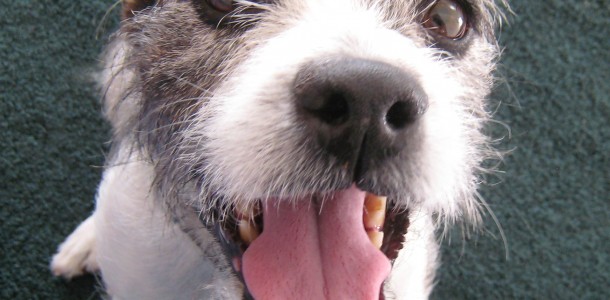

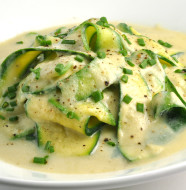
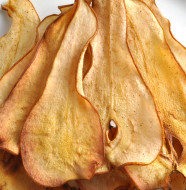
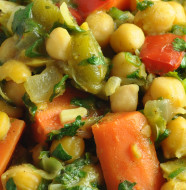

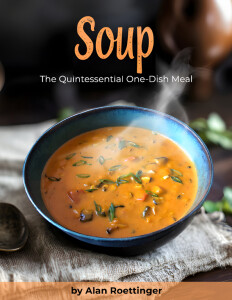
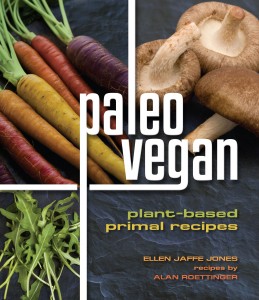
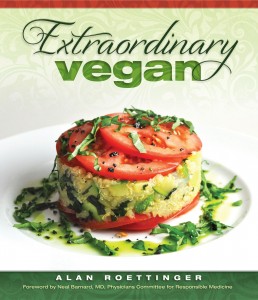
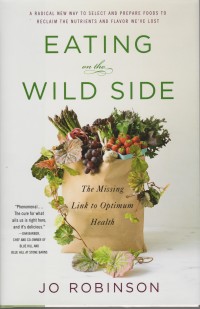
Love this, can completely relate. Brought tears to my eyes.
An inspiring piece of writing and heart!
Thanks, Jae!
So nice to read your back story! Thanks for sharing!